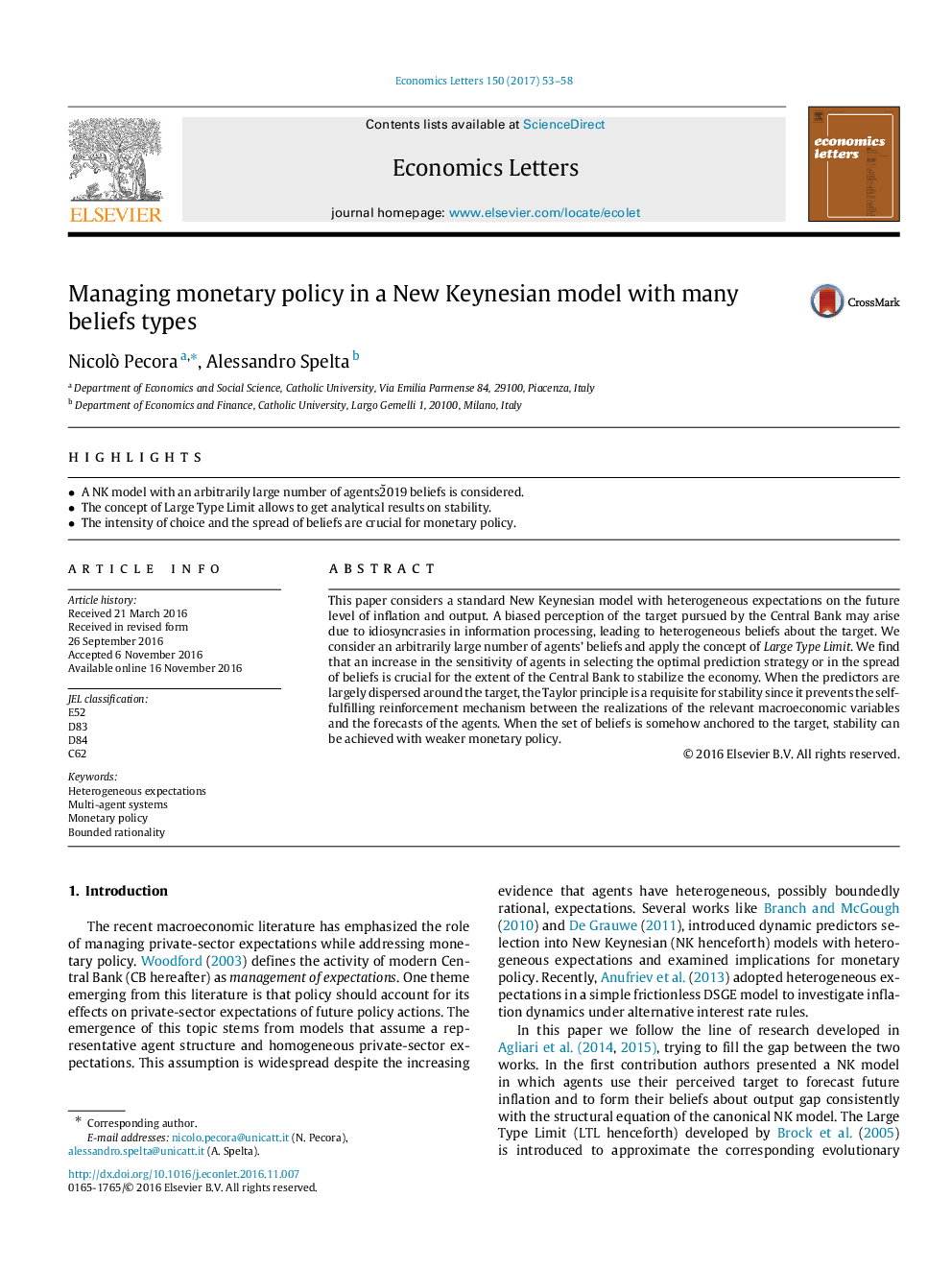| Article ID | Journal | Published Year | Pages | File Type |
|---|---|---|---|---|
| 5057873 | Economics Letters | 2017 | 6 Pages |
â¢A NK model with an arbitrarily large number of agents2Ë019 beliefs is considered.â¢The concept of Large Type Limit allows to get analytical results on stability.â¢The intensity of choice and the spread of beliefs are crucial for monetary policy.
This paper considers a standard New Keynesian model with heterogeneous expectations on the future level of inflation and output. A biased perception of the target pursued by the Central Bank may arise due to idiosyncrasies in information processing, leading to heterogeneous beliefs about the target. We consider an arbitrarily large number of agents' beliefs and apply the concept of Large Type Limit. We find that an increase in the sensitivity of agents in selecting the optimal prediction strategy or in the spread of beliefs is crucial for the extent of the Central Bank to stabilize the economy. When the predictors are largely dispersed around the target, the Taylor principle is a requisite for stability since it prevents the self-fulfilling reinforcement mechanism between the realizations of the relevant macroeconomic variables and the forecasts of the agents. When the set of beliefs is somehow anchored to the target, stability can be achieved with weaker monetary policy.
